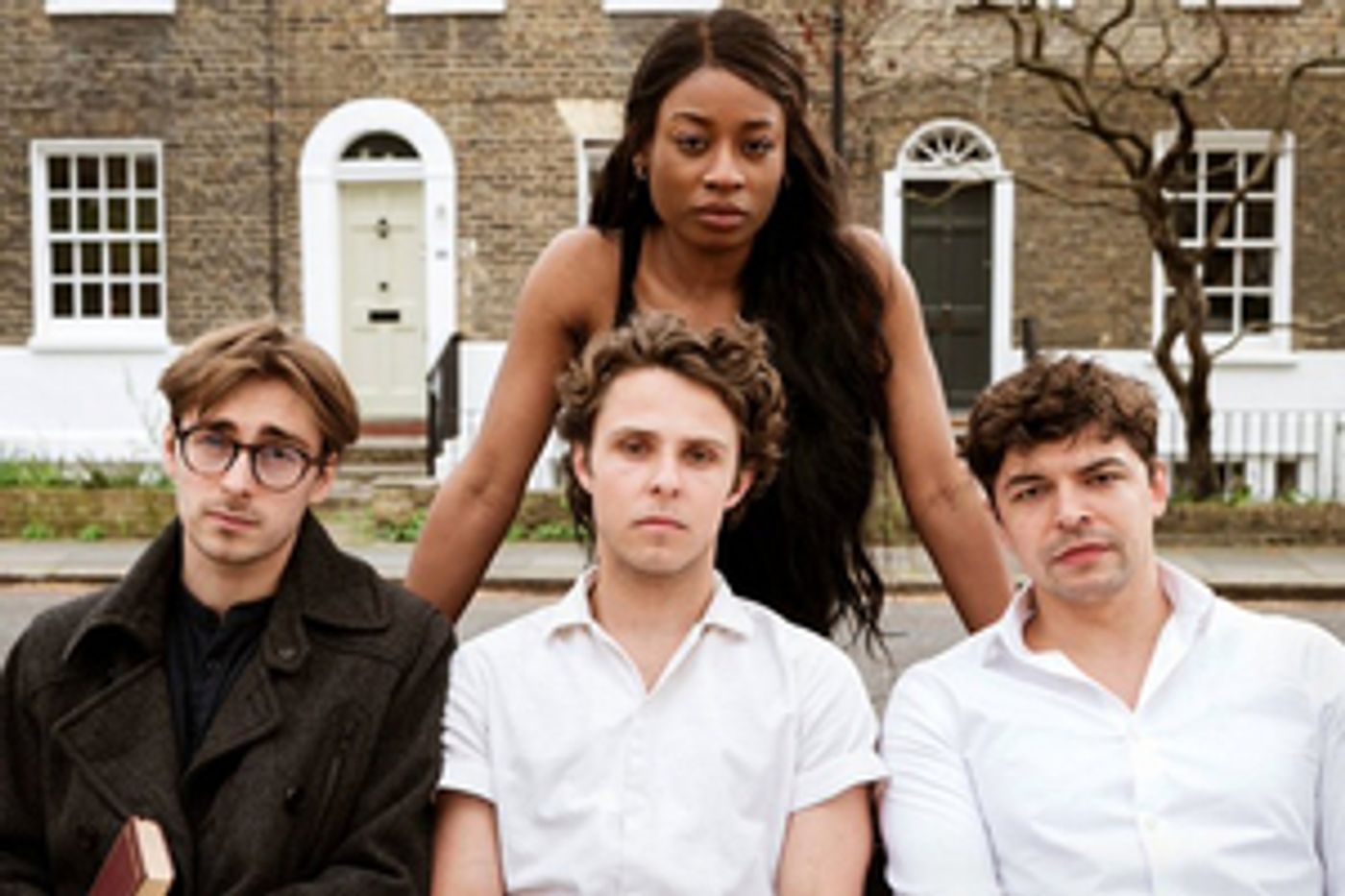Review: THE DWARFS, White Bear Theatre
Adapted from Harold Pinter's only novel, this play fizzes with inventive dialogue and super performances

 Spoiler alert! Dwarfs not included.
Spoiler alert! Dwarfs not included.
We're in Hackney (well, 'Ackney to be accurate) in the 50s with three lost boys ducking and diving through the glut of post-war jobs, reading, talking and shagging. Len is the eager-to-please fantasist (they're his 'dwarfs'), Mark is the womaniser and Pete? Pete is pretty screwed up, with enough going on upstairs to keep a psychologist in gainful employment into the 21st century. His girlfriend (impossible to believe it until you recall the shortage of young men at that time) is the beautiful, sensible Virginia - who definitely shouldn't be with him, nor Mark, but actually with Len. So guess who's the one who doesn't join the love triangle?
Kerry Lee Crabbe adapted Harold Pinter's only novel for the stage 20 or so years ago and Harry Burton's revival could not be more timely, not just for the toxic masculinity on show (provoking audible gasps in the house) but also for the pyrotechnic dialogue, working class voices articulating working class experience. Like many disaffected from politics today, these lads know what they don't want, they just can't see any alternatives.
If you're thinking that the set up has a La bohème vibe to it, you'd be right, but there's also a strong whiff of Colin MacInnes' London Trilogy (set a few miles to the west) and the early work of Martin Amis. I can report that the snap and fizz of the competitive language between lads (often debased to 'banter' by those not up to the pace) is true to life, the verbal oneupmanship a proxy for the cavemen's more violent squabbling over resources and women.
If this sounds a bit too 20th century blokeish, it probably is, but the play is saved from that barbed criticism by a brilliant performance of a brilliant character - Denise Laniyan's Virginia. At first she's little more than a lithe temptress performing for her boyfriend Pete, but we soon learn that she has a full-time job, her own circle of friends and can both express her desires and do something about it when Pete takes his misogyny too far (even for that time). This character was cut from a radio version of the novel in the 60s - it's hard to imagine how that could work at all.
Joining Tanıyan in the award-worthy acting on stage, Ossian Perret, Charlie MacGechan and Joseph Potter hold their own.
Perret gives Len a nervous charm, a witty intelligence and a slightly doomed aspect - you wince as he reports how much he enjoyed a spell in hospital because you know he's not going to get that level of attention at home any time soon. MacGechan's Mark is the bad boy your mother warned you about, but some of that is a front and Virginia's intelligence is as attractive to him as is her delicious inaccessibility. Potter's Pete is all OCD, aggression and mixed-up sexuality, a grinning monster whose mask slips before the end, a man drowning in insecurity and confusion.
Set in a dingy bedsit (with brilliant sound design by Julian Starr) at a bustling 90 minutes all-through, the play does lose its way a little in last few scenes when what we expect will happen does happen and the conversations, always a little circuitous, wander more than they have to. But this play is both an insight into Pinter's development into the playwright he was to become and a masterclass in acting up close and personal, within the cast and within the venue.
The Dwarfs is at the White Bear Theatre until 5 June
Reader Reviews
Videos

